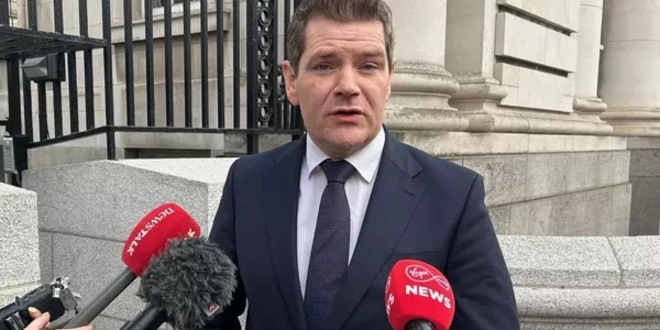Tánaiste Simon Harris has warned that Ireland’s pharmaceutical and chemical exports to the United States could be cut by as much as 50% over the next five years if the US proceeds with a proposed 20% tariff and the European Union imposes a reciprocal response. Currently, Ireland exports up to €58 billion worth of these goods to the US annually, with the American market accounting for roughly a third of all Irish goods exports.
Ahead of the expected US announcement, Harris presented a memo to Cabinet outlining the potential consequences. While a blanket 20% tariff across all EU countries is anticipated, there is still uncertainty around whether the US will instead implement targeted measures by country or industry.
The Tánaiste emphasized the need to avoid an escalating trade conflict, calling for dialogue between the EU and US. He stressed that such a significant trading relationship — valued at €1.6 trillion annually — cannot be ignored by any US administration. Despite the volatility of the situation, Harris confirmed that preparations for an EU-level response are underway and that Ireland is working closely with European counterparts to shape a coordinated approach.
An ESRI report cited by Harris estimates that between 50,000 and 80,000 jobs could be at risk in Ireland if the tariffs are introduced without mitigation.
Adapting to a Changing Global Trade Landscape
Taoiseach Micheál Martin echoed the Tánaiste’s concerns, acknowledging that while some level of tariffs appears inevitable, the focus must now shift to how Ireland and the EU can adjust. He stated that while negotiations may soften the blow, a new economic reality is emerging, and adaptability will be key. Martin highlighted the importance of assessing how quickly Ireland can transition in response to this shift.
To address the long-term impact, Minister for Public Expenditure Jack Chambers is set to propose a reassessment of the National Development Plan. The review will evaluate capital investment through to 2030 and incorporate various funding sources, including the Apple escrow funds and proceeds from AIB share sales.
Minister for Finance Paschal Donohoe outlined a three-pronged strategy for Ireland’s response. The first element centers on Harris’s diplomatic work with EU and US officials. The second involves Minister for Enterprise Peter Burke’s focus on improving Ireland’s economic competitiveness. The third element highlights increased public investment in infrastructure, especially in critical areas like energy and water, to support key employers.
Donohoe emphasized that while Ireland will engage in firm diplomacy, the EU must also remain composed in its response. He acknowledged the limits of what the government can do to compensate businesses impacted by reduced access to the US market but noted that state agencies such as the IDA will work with affected companies to help them find new export destinations within the EU and beyond.
In summary, Ireland is bracing for a major economic challenge, but the government is mobilizing across multiple levels — from international diplomacy to domestic policy — in a bid to soften the blow and preserve the long-term strength of its export-driven economy.
 The Daily Star Ireland
The Daily Star Ireland

